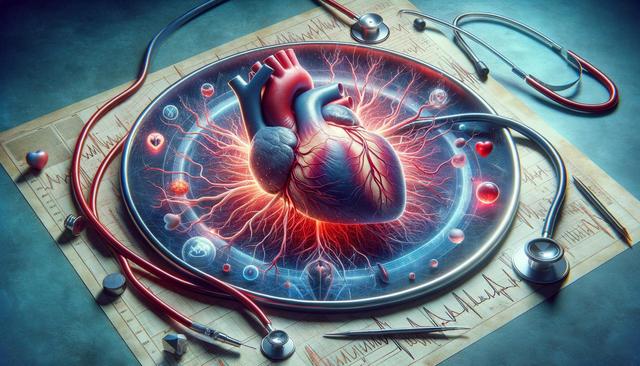Understanding What Heart Failure Really Means
Heart failure does not mean that the heart has stopped working entirely. Instead, it refers to the heart’s reduced ability to pump blood efficiently to meet the body’s needs. This condition can develop over time as the heart becomes weaker or stiffer, making it harder to circulate blood. There are different types of heart failure, including left-sided, right-sided, and congestive heart failure, each with distinct characteristics. Recognizing the early symptoms plays a critical role in preventing further complications and improving quality of life.
Many individuals may not notice the early signs of heart failure until the symptoms become more severe. However, being aware of these subtle changes can support timely medical intervention and help reduce the risk of long-term damage to the heart and other organs. The key is to understand what to look for and act promptly by consulting a healthcare provider.
Shortness of Breath and Fatigue: Common Early Symptoms
Two of the most common and overlooked signs of early heart failure are shortness of breath and fatigue. These symptoms often occur because the heart is not pumping efficiently, leading to a buildup of fluid in the lungs and reduced oxygen supply to the body. People may notice difficulty breathing during physical activity, while lying down, or even during light exertion such as climbing stairs.
Fatigue, on the other hand, results from the body not receiving enough oxygen-rich blood, which can make even daily activities feel exhausting. These symptoms tend to develop gradually and may be mistaken for signs of aging or a sedentary lifestyle.
Some key signs to watch for include:
- Feeling winded after minor activities
- Difficulty breathing while lying flat
- Unusual tiredness that doesn’t improve with rest
If these symptoms persist or worsen, medical evaluation is strongly recommended.
Swelling and Weight Gain from Fluid Retention
Another early warning sign of heart failure is swelling, also known as edema. This typically occurs in the feet, ankles, legs, or abdomen. The swelling results from fluid buildup due to the heart’s inability to circulate blood properly. As fluid accumulates, people may notice that their shoes feel tighter or that they’ve gained weight unexpectedly.
In addition to visible swelling, fluid retention can cause a feeling of heaviness or bloating. It may also lead to decreased appetite or discomfort when eating. These symptoms indicate that the kidneys are not receiving enough blood flow and are compensating by retaining sodium and water.
Pay attention to:
- Sudden or gradual swelling in the lower extremities
- Rapid, unexplained weight gain (more than 2-3 pounds in a day or 5 pounds in a week)
- A feeling of fullness or bloating in the abdomen
Monitoring these changes and reporting them to your healthcare provider can help prevent further complications.
Persistent Coughing and Increased Heart Rate
A persistent cough or wheezing, especially when lying down, can also be an early sign of heart failure. This occurs when fluid backs up into the lungs, irritating the airways. The cough may be dry or produce white or pink-tinged mucus. While many people associate coughing with respiratory infections, a chronic cough that doesn’t go away should not be ignored.
Alongside coughing, individuals might experience a rapid or irregular heartbeat. As the heart struggles to pump efficiently, it may beat faster to try to keep up with the body’s demands. This racing heartbeat can feel like fluttering or palpitations and may be accompanied by dizziness or shortness of breath.
Symptoms to be mindful of:
- Nighttime coughing or wheezing
- Chest congestion not related to a cold
- Noticeable heart palpitations or irregular rhythms
These are signals that the cardiovascular system may be under stress and should be evaluated.
When to Seek Medical Attention
Recognizing the early signs of heart failure is essential, but knowing when to seek medical help is just as important. If you or someone you know is experiencing multiple symptoms—especially shortness of breath, swelling, fatigue, or coughing—it’s advisable to consult a healthcare provider. Early diagnosis allows for more effective treatment and better disease management.
Doctors typically use physical exams, blood tests, imaging (such as echocardiograms), and electrocardiograms (ECGs) to assess heart function. Based on the findings, they may recommend lifestyle adjustments, medication, or further interventions to manage the condition. Delaying medical care can lead to worsening symptoms and a higher risk of hospitalization.
Consider making an appointment if the following occur:
- Symptoms persist for more than a few days
- Daily activities become increasingly difficult
- There is a noticeable decline in stamina or well-being
Taking action early can make a significant difference in maintaining heart health and overall quality of life.
Conclusion: Early Awareness Can Make a Difference
Heart failure is a serious condition, but early recognition of its symptoms can lead to more effective management and improved outcomes. By paying attention to subtle changes like fatigue, swelling, shortness of breath, and persistent coughing, individuals can take proactive steps toward seeking medical advice. While these signs can sometimes be attributed to less serious issues, it’s always better to be cautious. Regular check-ups, a healthy lifestyle, and awareness of your body are key elements in protecting your heart health. If you notice any persistent or unusual symptoms, do not hesitate to consult a healthcare professional for proper evaluation and guidance.


